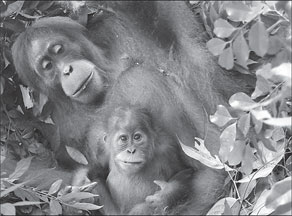|

Gluten - the terrorist lurking in our food
by Dr. Mahanama Warnakulasuriya
The word terrorism automatically conjures up guns, bombs explosions
and general devastation.
The food terrorist gluten likewise causes general mayhem and untold
misery to those susceptible to gluten and ignorance of this is
detrimental to our general health. Ignoring it is tantamount to
negligence on the part of those professionals who are responsible for
the care of our health such as Doctors and Nutritionists.
 |
|
Gluten is found in
biscuits, cakes, pastries and all kinds of bread |
Gluten intolerance is present in three categories: coeliac disease,
wheat allergy and pure Gluten intolerance. There are no defining
boundaries to the reactions the body goes through from Gluten
intolerance and all three categories appear to have very similar
symptoms.
Treatment
The systems affected are digestive, nervous and integumentary;
sufferers usually complain of abdominal discomfort, bloating,
constipation or diarrhoea, generalised apathy, headaches, joint and bone
pains.
Skin rashes are very distressing and a condition called dermatitis
herpetiformis is associated with it. Sufferers get a very itchy blistery
rash usually affecting elbows, knees, back of neck and chest and
sometimes the scalp.
In the digestive system the lining of the small intestines is
affected leading to mal absorption, Vitamin deficiencies and anaemia
have been reported. Blood tests show antibodies and changes due to the
anaemia.
The gold standard for diagnosis is a duodenal biopsy carried out via
endoscopy.What is Gluten? It is a Protein consisting of gliadin and
glutenin, it's found in wheat, barley, rye and several other cereals.
Wheat contains 12 percent Gluten and appears to be the main culprit.
It's used in food additives in the form of flavouring, stabilising and
thickening agent.
Eliminated
Often as dextran, therefore Gluten is found in biscuits, cakes,
pastries and all kinds of bread as well as in beer and various other
food where wheat, barley or rye are ingredients.Treatment is a Gluten
free diet.
This has to be lifelong. In the west Gluten free food is available
though at a cost. But sufferers of Gluten intolerance are glad to bear
the extra cost and enjoy food that would otherwise have been forbidden.
Research carried out in Finland has shown that the elderly are more
likely to suffer from Gluten intolerance.
In Sri Lanka we are fortunate as our basic diet has many of Gluten
free carbohydrates in the form of rice, rice flour, lentils such as
gram, mung, cow pea, yams such as manioc and sweet potato, bread fruit
and jack. Reduction in wheat flour consumption will help reduce the
misery caused by Gluten intolerance.
Our economy too will benefit if we eat more rice and similar and less
wheat products, thereby reducing the import of wheat flour.
Sri Lanka spends millions of rupees importing wheat, this can be
eliminated and be a saving for the country if more people are educated
on the adverse effects of wheat.Gluten awareness has also hit the
celebrities of the western world; a recent article in the Sunday Times
(UK) featured actresses and a fashion designer who had switched to a
Gluten free diet regime and how they felt the self improvement.
(The writer is a health professional with over 30 years of experience
in the medical field. He has served in the Sri Lankan Army and
plantation sector.)
Co-morbidities associated with childhood obesity
While a great deal of research on childhood obesity has spotlighted
the long-term health problems that emerge in adulthood, a new UCLA study
focuses on the condition's immediate consequences and shows that obese
youngsters are at far greater risk than had been supposed.
Compared to children who are not overweight, obese children are at
nearly twice the risk of having three or more reported medical, mental
or developmental conditions, the UCLA researchers found. Overweight
children had a 1.3 times higher risk.
 “This study paints a comprehensive picture of childhood obesity, and
we were surprised to see just how many conditions were associated with
childhood obesity,” said Dr. Neal Halfon, a professor of paediatrics,
public health and public policy at UCLA. “This study paints a comprehensive picture of childhood obesity, and
we were surprised to see just how many conditions were associated with
childhood obesity,” said Dr. Neal Halfon, a professor of paediatrics,
public health and public policy at UCLA.
“The findings should serve as a wake-up call to physicians, parents
and teachers, who should be better informed of the risk for other health
conditions associated with childhood obesity so that they can target
interventions that can result in better health outcomes.”
With the dramatic rise in childhood obesity over the past two
decades, there has been a parallel rise in the prevalence of other
childhood-onset health conditions, such as attention
deficit-hyperactivity disorder, asthma and learning disabilities. But
previous studies on the topic have been limited due to a narrow focus on
a specific region of the county, a small sample size or a single
condition.
The new UCLA research, a large population-based study of children in
the United States, provides the first comprehensive national profile of
associations between weight status and a broad set of associated health
conditions, or co-morbidities, that kids suffer from during childhood.
Overall, the researchers found, obese children were more likely than
those who were classified as not overweight to have reported poorer
health; more disability; a greater tendency toward emotional and
behavioral problems; higher rates of grade repetition, missed school
days and other school problems; ADHD; conduct disorder; depression;
learning disabilities; developmental delays; bone, joint and muscle
problems; asthma; allergies; headaches; and ear infections. For the
study, the researchers used the 2007 National Survey of Children's
Health, analysing data on nearly 43,300 children between the ages 10 and
17. They assessed associations between weight status and 21 indicators
of general health, psychosocial functioning and specific health
disorders, adjusting for sociodemographic factors.
Of the children in the study, 15 percent were considered overweight
(a body mass index between the 85th and 95th percentiles), and 16
percent were obese (a BMI in the 95th percentile or higher).
The UCLA researchers speculate that the ongoing shift in chronic
childhood conditions is likely related to decades of under-appreciated
changes in the social and physical environments in which children live,
learn and play.They propose that obesity-prevention efforts should
target these social and environmental influences and that kids should be
screened and managed for the co-morbid conditions.
The researchers add that while the strength of the current study lies
in its large population base, future studies need to examine better
longitudinal data to tease out causal relationships that cannot be
inferred from a cross-sectional study. “Obesity might be causing the
co-morbidity, or perhaps the co-morbidity is causing obesity - or both
might be caused by some other unmeasured third factor,” Halfon said.
“For example, exposure to toxic stress might change the neuroregulatory
processes that affect impulse control seen in ADHD, as well as leptin
sensitivity, which can contribute to weight gain.
An understanding of the association of obesity with other
co-morbidities may provide important information about causal pathways
to obesity and more effective ways to prevent it.”
- MNT
Scientists uncover gene that may help create natural leaders
A gene has been uncovered that may help to create born leaders. The
leadership gene, known as rs4950, is an inherited DNA sequence
associated with people taking charge.
Scientists accept that leadership skills are also learned.
 But the gene may provide the vital push needed to make someone into a
manager rather than a minion. But the gene may provide the vital push needed to make someone into a
manager rather than a minion.
Researchers found the gene after analysing DNA samples from around
4,000 individuals and matching them to information about jobs and
relationships. Workplace supervisory roles were used as a measurement of
leadership behaviour.
The study showed that a quarter of the observed variation in
leadership traits between individuals could be explained by genetics.
Lead scientist Dr Jan-Emmanuel De Neve, from University College London,
said: “We have identified a genotype, called rs4950, which appears to be
associated with the passing of leadership ability down through
generations.
“The conventional wisdom - that leadership is a skill - remains
largely true, but we show it is also, in part, a genetic trait.”
Some of the greatest leaders in recent history include Martin Luther
King, Gandhi, Nelson Mandela and Sir Winston Churchill.
But leaders do not necessarily have to be heroic or good. Adolf
Hitler, Joseph Stalin and Genghis Khan were also great leaders in their
own way.
Despite the importance of the gene, acquiring a leadership position
still mostly depends on developing the necessary skills, say the
researchers.
“As recent as last August, Professor John Antonakis, who is known for
his work on leadership, posed the question: ‘is there a specific
leadership gene?’ “This study allows us to answer yes - to an extent.
Although leadership should still be thought of predominantly as a skill
to be developed, genetics - in particular the rs4950 genotype - can also
play a significant role in predicting who is more likely to occupy
leadership roles.”
More research was needed to understand the ways in which rs4950
interacted with other factors, such as a child learning environment, he
added.
- PA
Apes’ sense of fairness provides another close link to humans
Chimpanzees possess a sense of fairness that has previously been
attributed as uniquely human. Researchers played the Ultimatum Game with
the chimpanzees to determine how sensitive the animals are to the reward
distribution between two individuals if both need to agree on the
outcome.
The researchers say the findings, suggest a long evolutionary history
of the human aversion to inequity as well as a shared preference for
fair outcomes by the common ancestor of humans and apes. According to
author Darby Proctor, “We used the Ultimatum Game because it is the gold
standard to determine the human sense of fairness.
In the game, one individual needs to propose a reward division to
another individual and then have that individual accept the proposition
before both can obtain the rewards.
 Humans typically offer generous portions, such as 50 percent of the
reward, to their partners, and that's exactly what we recorded in our
study with chimpanzees.” Humans typically offer generous portions, such as 50 percent of the
reward, to their partners, and that's exactly what we recorded in our
study with chimpanzees.”
Co-author Frans de Waal, adds, “Until our study, the behavioral
economics community assumed the Ultimatum Game could not be played with
animals or that animals would choose only the most selfish option while
playing. We've concluded that chimpanzees not only get very close to the
human sense of fairness, but the animals may actually have exactly the
same preferences as our own species.” For purposes of direct comparison,
the study was also conducted separately with human children.
In the study, researchers tested six adult chimpanzees (Pan
troglodytes) and 20 human children (ages 2 - 7 years) on a modified
Ultimatum Game. One individual chose between two differently coloured
tokens that, with his or her partner's cooperation, could be exchanged
for rewards (small food rewards for chimpanzees and stickers for
children).
One token offered equal rewards to both players, whereas the other
token favoured the individual making the choice at the expense of his or
her partner.
The chooser then needed to hand the token to the partner, who needed
to exchange it with the experimenter for food. This way, both
individuals needed to be in agreement.
Both the chimpanzees and the children responded like adult humans
typically do.
If the partner's cooperation was required, the chimpanzees and
children split the rewards equally.
However, with a passive partner, who had no chance to reject the
offer, chimpanzees and children chose the selfish option.
Chimpanzees, who are highly cooperative in the wild, likely need to
be sensitive to reward distributions in order to reap the benefits of
cooperation. Thus, this study opens the door for further explorations
into the mechanisms behind this human-like behaviour.
For eight decades, the Yerkes National Primate Research Center, Emory
University, has been dedicated to conducting essential basic science and
translational research to advance scientific understanding and to
improve the health and well-being of humans and nonhuman primates.
Today, the centre, as one of only eight National Institutes of
Health-funded national primate research centers, provides leadership,
training and resources to foster scientific creativity, collaboration
and discoveries. Yerkes-based research is grounded in scientific
integrity, expert knowledge, respect for colleagues, an open exchange of
ideas and compassionate quality animal care.
Within the fields of microbiology and immunology, neurologic
diseases, neuropharmacology, behavioural, cognitive and developmental
neuroscience, and psychiatric disorders, the center's research programs
are seeking ways to: develop vaccines for infectious and noninfectious
diseases; treat drug addiction; interpret brain activity through
imaging; increase understanding of progressive illnesses such as
Alzheimer's and Parkinson's diseases; unlock the secrets of memory;
determine how the interaction between genetics and society shape who we
are; and advance knowledge about the evolutionary links between biology
and behaviour.
- MNT
|



